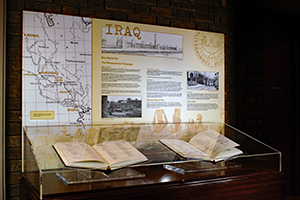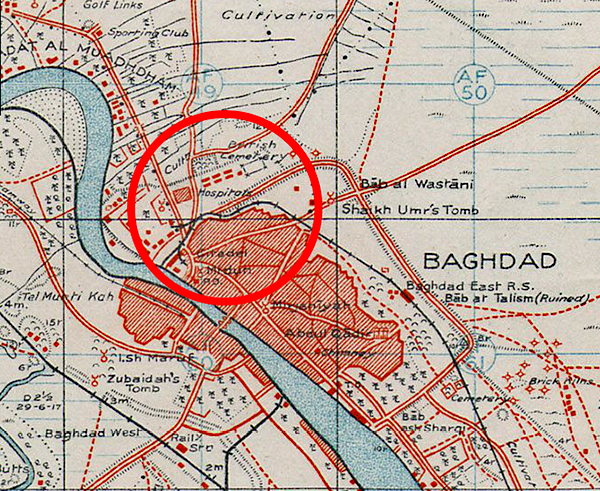First World War Project
Thomas KNIGHT (of Luddenham)
bapt. 24th December 1890 Private, Service Number M(2)/340021 |

"REST ON DEAR ONE YOU ARE NOT FORGOTTEN"
Thomas came from a prolific family in Washington, Sussex. His grandparents, William (a lime burner all his working life) and Harriet, were both born locally. They raised 12 children in Washington, including Thomas's father, George (a general labourer and then a Road Labourer, foreman who worked for the County Council). George went on to marry Elizabeth Hannah Nash. Thomas was one of nine children raised in this Washington & Findon family (one of their homes at North End sits between the two villages). His older siblings being Ann, Frances, James (infant mortality), William, John, Charlotte, Sarah, and Harriet; his younger siblings were John and Charlotte. Records suggest Thomas was born at North End, Sussex, but baptised in Washington.
From a largely agricultural/labouring background, Thomas managed to break the mould, adapting to the advent of mechanised transport to become a chauffeur by the time of his marriage to Mollie Smith on 10th December 1913 at Weybridge, Surrey. In 1913, Thomas lived at No.6 South Cottages, and his wife's family home address was "Normania", both of Weybridge.
So, how did the "domestic groom" found in the 1911 Census become a chauffeur? A good indication is the household in which Thomas lived at that time. Living in The Stables, Barkham Manor, Wokingham, Berkshire Thomas lived and worked under Luke Twort, a domestic Chauffeur. So, the opportunity existed to understand the opportunities offered by learning the mechanical and other skills necessary to be a chauffeur alongside the duties of a groom. In this period, employment advertising for chauffeurs frequently included duties as "groom"; occasionally inviting women to take these roles during the war years.
Thomas enlisted at Sturminster Newton, Dorset, some time after August 1917 (calculated from his War Gratuity). At that time, Thomas lived at Sherborne, 27 miles to the west of Sturminster Newton, Dorset. With his newly found occupation, perhaps his frequent movements across Sussex and Dorset can be understood. So, why was Thomas's wife living in Luddenham in 1919? We have explored the avenue of 'family ties' (Field and Nash) and have not been able to identify a family link. The "Fields" in Teynham are not related so far as we can tell. It is most likely that Thomas and Mollie moved to Kent following enlistment into the Army Service Corps, which had a training camp at Grove Park, Sittingbourne. Being married, it may be that Thomas and Mollie were able to live outside the hutted accommodation at Grove Park in the numerous rented accommodations nearby. This connection is clarified In the House of Commons answer in 1919: "There are no men of the Army Service Corps billeted in houses in or near Grove Park; 1,480 men are lodged in hired premises there. The hutted camp at Grove Park will take 1,122 men in all, and there are 1,077 at present in occupation." Once Thomas was posted, Mollie may either have remained in "hired premises" at Oare or moved there awaiting his return. Nash's Cottages, Luddenham, were convenient for railway links to Sittingbourne via a 3-mile walk to Teynham (or, less than a kilometer across country to Oare Halt (Light Railway) then on to Faversham, only 1.5 miles away).
Thomas does not appear on the brass Memorial Plaque erected in Luddenham Church for the employees of local farmer, Ashley Stevens (of Luddenham Manor). Set adrift in a strange place, Mollie would quite naturally have asked that her husband be remembered in Luddenham Parish.
Mrs Mollie Knight paid for the additional inscription to Thomas's headstone in Baghdad - "REST ON DEAR ONE YOU ARE NOT FORGOTTEN".
Chauffeurs in the early part of the 20th century had to master a competence in technical/mechanical matters, and it was this background that may explain the direction that Thomas took in his service within the Army Service Corps, Motor Transport, Advanced Mechanical Transport Depot, Baghdad. This unit arrived soon after the British forces occupied Baghdad in March 1917 and consolidated the following month. A potential avenue for further exploration is the habit of transferring men out of the A.S.C. into combatant units if they were fit enough [House of Commons Debate 11 March 1918 vol 104 cc58-9W]. Soldiers in the A.S.C. would, of course, have been trained to arms. Thomas's presence in the A.S.C. may rest on a balance between his peacetime experience and his personal fitness. Without surviving paperwork, this avenue is closed to us.
Along with technical support units, Baghdad was also the location of two stationary hospitals and three casualty clearing stations. The medical expertise to be found here was central to our story for Thomas Knight, who died on 22nd May 1918 from meningitis. The ASC diaries for this period record several episodes of medical isolation of the workshops during 1917 and 1918 following outbreaks of smallpox. To limit the impact of those outbreaks, inoculation was imposed on all soldiers. Some literature suggests an association between smallpox inoculation and cerebrospinal meningitis.
Circumstances of the death of Thomas Knight

There are two threads to tease out if we are to learn about the death of Thomas Knight: Firstly, his circumstances in the ASC; and secondly, his death in Baghdad Isolation Hospital.
The War Diary for the Advanced Mechanical Transport Depot (Baghdad) is understandably concerned primarily with recording the number of vehicles processed to return to the field or prepare new vehicles for military use. They were responsible for fabrication of parts as well as servicing and delivery. Battalion strength varied according to attachments to local companies as needed.
Formally, "the role of the RASC in the field falls into two main parts, supply and transport. Supply embraces the provision of food, petrol and lubricants, fuel and light, hospital supplies and disinfectants. Transportis concerned with the conveyance of the above supplies, together with ammunition, engineer stores, ordnance stores and post, from railhead, or from base if no railhead exists, to all units of a field force.
However, across the period January to May 1918, there were several references to the prevalence of Smallpox and the isolation measures implemented to control its spread. These War Diary extracts illustrate the conditions affecting the ASC Workshops:
Week ended 29th December: "On the morning of the 29-12-17 Sgt Crofton who was sent to the Isolation Hospital on 27-12-17 was diagnosed as having small Pox. The D.A.D.M.S and the medical Officer Citadel came round and isolated 351 Billet., and in the afternoon of 29-12-17 Private Playfer and Bisti Khazan were admitted to the Isolation Hospital also with small Pox, an Sergeant Conlon J was admitted with Measles. The Medical Officer then ordered the whole of the Depot to be isolated including all the outside Billets. This was done and all the necessary arrangements with regard to taking round the food, Water etc, were made. As far as possible the Unit Artificers etc were brought over to 12 Billet in order that the work could continue as far as possible. All native skilled labour was stopped until Billets could be arranged for them, and have the whole lot isolated."
Week ending 5th January 1918: "No fresh cases of Small Pox have occurred during the past week. The work has been progressing as far as possible, but has been held up owing to the fact that no arrangements could be made for employing the Skilled Native Labour until the 5th. 99 Arabs were vaccinated and put in Billets closest the Workshop and Isolated." 13th January 1918 entry: The period of Isolation ended mid-day 12-1-18.
20th January: On the morning of 19-1-18 one of the Billets viz.351 was put in quarantine owing to a case of Smallpox. It does not effect the rest of the Depot.
Week ending 30-3-18: Ford shops hampered by "a certain proportion of the Men working in the Ford Shops being segregated in 303 Billet on account of Small Pox."
Week ending 6th April 1918: "The new wash-houses and other alterations for the Unit are proceeding at a satisfactory rate. Billet No.303 where the men were segregated for Small Pox has now been taken out of quarantine, and I hope that the amount of Artificers now set free, will considerably aid the output.
Baghdad Isolation Hospital accounts show there was only one British death from Meningitis during May 1918 - during the whole of May there were 13 to 15 Meningitis patients in treatment/isolation. Broadly, 50% of those contracting meningitis died in this hospital. Thomas was one of only four deaths from meningitis in the first five months of 1918. In the same period of five months, there had also been fatal British cases from Cholera (13), Small pox (29), and Typhus (4).
Thomas Knight was posthumously awarded the British War and Victory Medals. [See Appendix 1]


 World War 1 Pages
World War 1 Pages